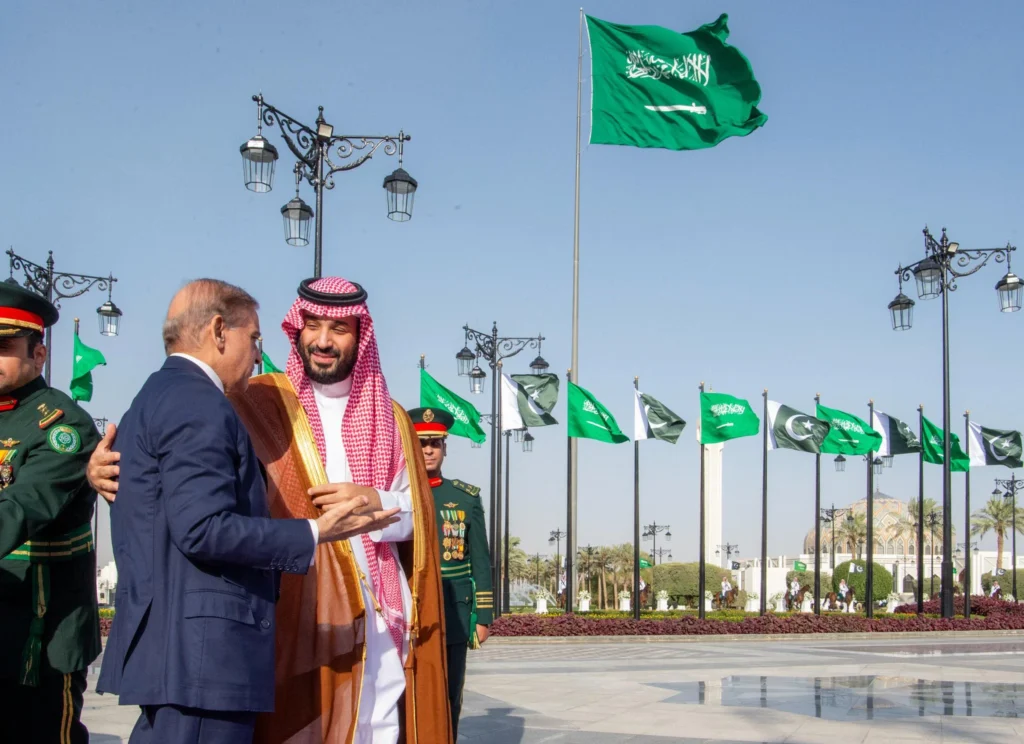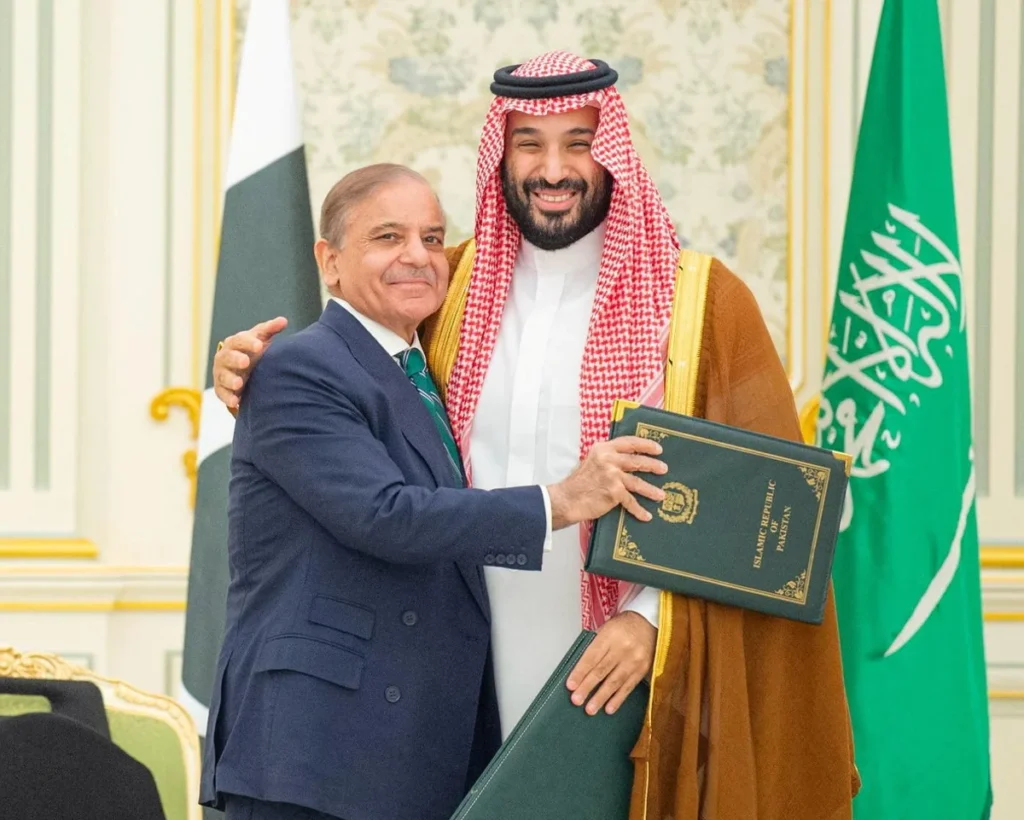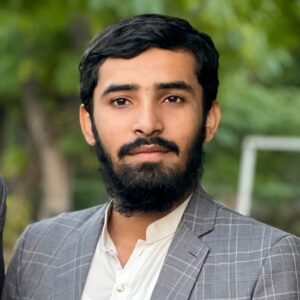ایک ہوں مسلم حرم کی پاسبانی کے لیے
نیل کے ساحل سے لے کر تابخاک کاشغر
The golden halls of Riyadh’s Royal Palace witnessed history in the making on September 17, 2025, as two leaders shook hands over an agreement that would forever change the security landscape of the Islamic world. Pakistani Prime Minister Shehbaz Sharif and Saudi Crown Prince Mohammed bin Salman had just signed the “Defence Pact,” which many are calling the most significant military partnership since the legendary 1974 Lahore Islamic Summit.
The scene was reminiscent of that historic gathering fifty-one years ago, when Prime Minister Zulfikar Ali Bhutto and the martyred King Faisal had envisioned a united Muslim world capable of standing on its own feet. Today, their successors are finally realizing that dream through ink on paper that promised mutual defence, shared destiny, and collective strength.
The Echo of October 1973
To understand the magnitude of this moment, one must travel back to October 1973, when the desert sands of Sinai were stained with blood and the world held its breath. As Israeli forces clashed with Egyptian and Syrian armies in what would become known as the Yom Kippur War, Pakistan stood firmly with its Arab brothers. Pakistani pilots flew combat missions, military advisors provided strategic counsel, and the nation’s full moral and material support flowed toward the Arab cause.
That war changed everything. The oil embargo that followed shook Western powers, but it also forged bonds between Pakistan and Saudi Arabia that would endure for half a century. When Saudi Arabia needed protection, Pakistan was there. When Pakistan faced international isolation, Saudi Arabia opened its doors and treasury.
From Shadows to Spotlight
For decades, this partnership operated in the shadows. Pakistani military personnel quietly served in Saudi Arabia – 1,671 of them scattered across the Kingdom’s military and interior ministries, training local forces and providing expertise that only comes from a battle-hardened military. They were the unsung guardians of the Holy Land, their presence known to few but vital to many.
The numbers tell a story of trust: 912 personnel under the Saudi Defence Ministry, 759 under the Interior Ministry, representing every branch of Pakistan’s armed forces. These weren’t just advisors; they were brothers in arms, bound by faith and purpose.
The Nuclear Question
But what transformed this quiet cooperation into headline news was the elephant in the room – Pakistan’s nuclear arsenal. When journalists pressed Saudi officials about whether the Kingdom would now fall under Pakistan’s nuclear umbrella, the carefully crafted response spoke volumes:
“This is a comprehensive defensive agreement that encompasses all military capabilities.”
The implications sent shockwaves from New Delhi to Washington. For the first time in history, a nuclear-armed Muslim nation had formally pledged to defend the birthplace of Islam. The symbolism was as powerful as the military reality – the Ummah now had teeth.
The New Alliance Architecture
The timing couldn’t have been more significant. As Israel’s recent attack on Qatar sent tremors through the Arab world, traditional security arrangements seemed increasingly inadequate. The United States, long viewed as the Gulf’s principal guarantor, has particularly lost trust among Arab states, as many believe Washington has repeatedly harmed Muslim interests and unwaveringly supported Israel. Gulf monarchies, and especially Saudi Arabia, preferring Pakistan over the United States, underscore the Kingdom’s view of Pakistan as the leader of the Muslim Ummah.

China’s Belt and Road Initiative was reshaping economic ties, and now Pakistan is extending Beijing’s strategic reach into the heart of the Middle East. This isn’t just about military cooperation; it is about reimagining the global order. The “Grand Bargain” that strategists had long discussed, Pakistan’s military might married to Arab economic power, was finally becoming a reality.
Moreover, Pakistan’s prestige on the global stage soared after the decisive May 10 war with India, where Pakistan demonstrated clear military superiority. That victory elevated Pakistan’s stature as a formidable defence power, prompting the world to recognize Islamabad’s critical role in the regional security architecture. This convergence of historical achievement and strategic necessity now cements Pakistan’s position as the linchpin of a new alliance framework spanning South Asia and the Middle East.
Ripples Across the Region
In Tehran, policymakers watched nervously as their primary regional rival gained a nuclear-armed ally. In New Delhi, defence planners contemplated a new two-front challenge. In Washington, analysts debated whether this represented a shift away from American influence or simply pragmatic diversification.
But perhaps the most profound impact was felt in the hearts of ordinary Muslims worldwide. From Karachi’s bustling markets to Cairo’s ancient streets, believers saw something that had been missing for generations – Islamic unity backed by real power.
Legacy of Vision
As the Pakistani delegation prepared to depart from Riyadh, many recalled the words of Allama Iqbal, Pakistan’s founding philosopher, who had dreamed of Muslim nations standing as equals among the world’s powers.
غيرت ہے بڑی چیز جہان تگ و دو میں
پہناتی ہے درویش کو تاج سردارا
The defence pact isn’t just a defence agreement; it was the manifestation of a seventy-year struggle for dignity, respect, and self-reliance.
The shadows of 1974 had finally given way to the sunshine of 2025. The vision of Bhutto and Faisal, interrupted by tragedy and politics, had found new life in a new generation of leaders who understood that in a multipolar world, strength comes through unity.
The Muslim world’s long wait for strategic independence is finally getting its way.


